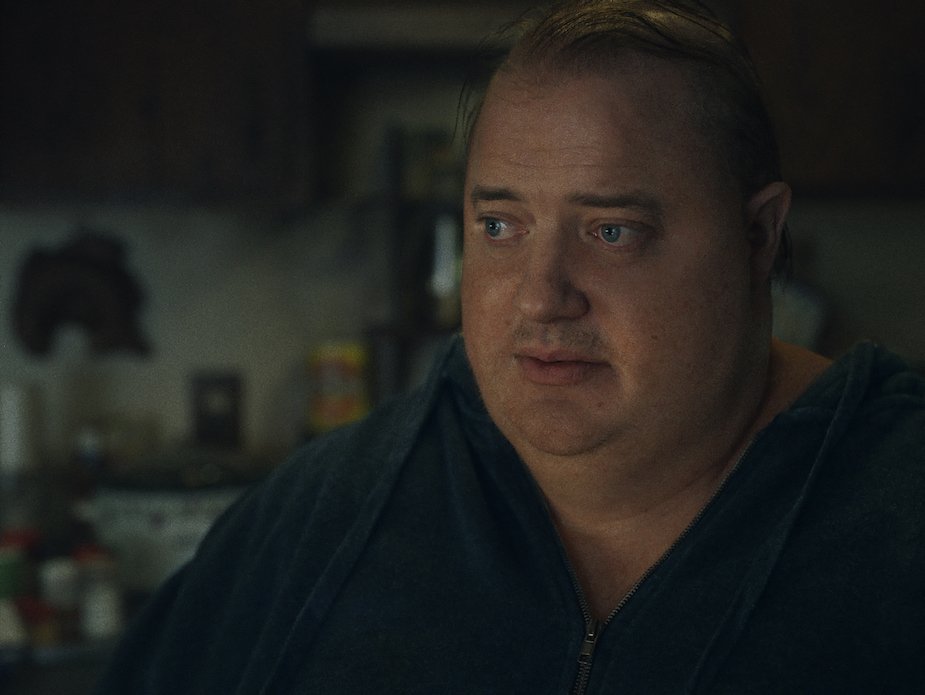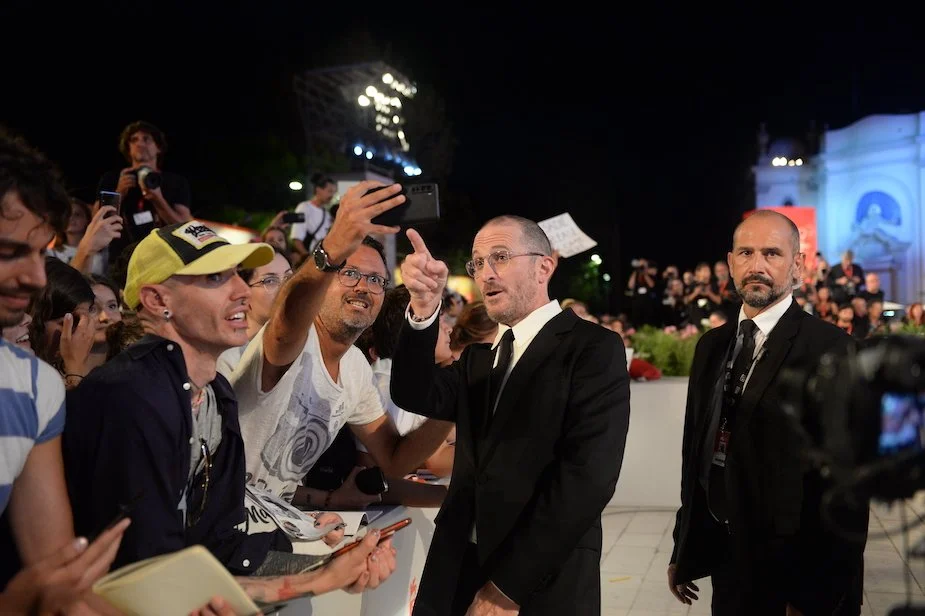'The Whale', which is the film version of the play by Samuel D. Hunter, deals with an obese man's last chance at redemption.
There are press conferences and there are press conferences. And then, there is the press conference for Darren Aronofsky's The Whale, which will go down in my personal history as the most intensely human experience I've ever had at a film festival.
Featuring the Brooklyn-born filmmaker, surrounded by his cast (on the podium) and some of his crew occupying the front row, there was an air of excitement, and a feeling of vulnerability which affected everyone in the room. I could see the colleague to my right, his hands shaking as he took a photo of the talent speaking and Aronofsky himself started answering the first question with a slight tremor to his voice.
The Whale, which is the film version of a play by Samuel D. Hunter, who also wrote the screenplay, deals with an obese man's last chance at redemption. Charlie is a gay, 600 lbs. online English teacher living in religiously conservative middle America. Following the death of his partner, Charlie, played by the magnificent Brendan Fraser, is trying to eat himself to death, but he keeps being interrupted in his purpose. Among the cast of characters doing the interrupting are his friend Liz (Hong Chau) who is his late partner's sister, Thomas (Ty Simpkins) a Mormon boy who comes knocking at his door, and Charlie's estranged daughter Ellie (Sadie Sink) who has a giant bone to pick with her dad and a chip on her shoulder the size of Idaho -- where the story takes place. Within this last connection, there is a chance of redemption for Charlie.
As well as a good probability of an Oscar nomination for Fraser.
If the story seems personal it is. Apart from a commentary on obesity, which has become an American affliction we've exported to the world, it is also a play about being gay in the wrong place, at the wrong time. And Hunter admitted the story is deeply personal during the press conference, within a hear-a-pin-drop moment where I could swear tears were welling up in his eyes.
Aronofsky admitted that when he watched the play in 2012 he immediately wanted to buy the rights to it. He also said he felt "gratitude to be back here," a nod to the place where he's premiered most of his films since The Wrestler "the Venice Film Festival is my home."
The filmmaker pointed out that "in the last few years so many of us have lost so much and that includes the loss of human connection," then adding that "cinema is connections and that’s exactly what the world needs."
The material first appeared on his radar, through a review. "I remember exactly where the review of The Whale was in the NY Times," Aronofsky said, and he went to Playwrights Horizons to watch it. He felt deeply moved by the story and reached out to Hunter, which then began what the filmmaker called a "ten year long odyssey to bring it to the screen," that also included a worldwide pandemic.
What strikes the viewer of the film, and probably those lucky enough to have witnessed the play on stage, is how rich each character is, how magnificently developed in flesh and blood they are. In the course of just under two hours, we get to know them, and understand them, and they continue to live within us for days for come. That is the true genius of Hunter's writing, and the way Aronofsky tackles the material, along with his frequent collaborator DoP Matty Libatique. The brilliance of his cinematographer becomes crucial in telling a story that takes place in one setting, blocked as a theatre play with just five characters.
"I started in this business with 20,000 dollars and a dream," Aronofsky confessed, "and realized early on that boundaries are your gateway to freedom." The limits for The Whale lay in telling an exciting and cinematic story within a small apartment and featuring a character who is not very mobile. "Watching the rough cut, that's always the most difficult part of a filmmaker's life -- and it was for me a relief as I didn't feel claustrophobic," the filmmaker added. "It's like a murder mystery where the characters slowly reveal themselves."
Brendan Fraser was always a favorite actor of mine, his kind blue eyes and deep voice I found wildly attractive in films like The Mummy and Blast from the Past. Now, as this literally larger than life character Charlie, there is an even deeper beauty to him, this sense of vulnerability which makes a man spellbinding -- something he shares with Aronofsky. They have both shed their boyish good looks in favor of a profound sense of insight, a love of life and an acceptance of what is truly important while we are on this earth. Perhaps that was the secret in the room during the press conference in Venice, and that is also the reason why The Whale is a hit or miss with people (and by people I mean film critics). You either accept its full message, without bringing to it your personal prejudice, nasty agenda or cynicism -- which has to be checked at the door to truly get the film -- or you continue on your merry way, taking your skeptical world-weary self along.
Yes, in case you couldn't tell, I'd go to war for this film.
"You need to be a really strong person to inhabit that physical being," said Fraser about his character, "I needed to learn to absolutely move in a new way; I developed muscles I didn’t know I had and I felt a sense of vertigo when all the appliances were removed, at the end of the day, like stepping off the boat in Venice." The Canadian-American actor admitted that he's got a newfound appreciation for those whose bodies are similar to Charlie's.
"This may be incredibly shallow to the playwright," Aronofsky prefaced his next statement by saying, but the old standard, he continued, applies here, "you can’t judge a book by its cover is a theme in this film -- you can’t judge any of these characters by their appearance."
Fraser addressed his character's heroism, by stating "by far Charlie is the most heroic man I’ve ever played, his superpower is to see the good in others and that is heroic," but also prove his way to salvation.
Hunter nearly brought the room to tears by explaining that the play came from a "pretty personal place, it's set in my hometown, and I also have a history of self medicating with food." He then continued, "I also went to a fundamentalist religious high school and I was a gay kid there." But tapping into something so close to home for him proved a challenge. "This one might be my most personal work, I was afraid to write it," he confessed. Hunter also added that he needed to "write it from a profound place of love and empathy." And it helps to watch it with the same frame of mind too. He then concluded, "and I wanted to render someone who has unwavering faith in the goodness of human beings -- a lighthouse in the middle of a dark, dark sea." Fraser's light blue eyes, the kindness within them and the gentle way in which he treats others become that lighthouse, for those of us who can still allow love into our hearts.
That brings me to final but central message of the film, which Aronofsky explained perfectly. "People are really incapable of not caring," he pointed out, a theme one can find as a constant in Hunter's work. He continued, "that’s the most important message to put out into the world, everyone is leaning into the cynicism and the darkness and giving into that world -- but underneath it all we all care about each other and we need to improve on that."
The Venice International Film Festival continued through September 10th, 2022.
Images courtesy of La Biennale, used with permission.


